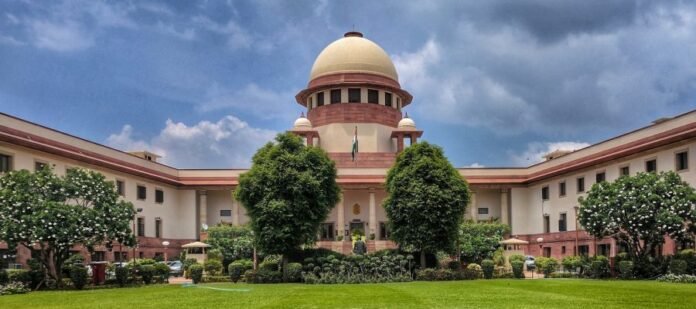The Supreme Court has restricted intern access on Mondays, Tuesdays, and Fridays following SCBA’s concerns about courtroom decorum.
Subheading:
Following objections raised by the SCBA, the Supreme Court restricts intern access on busy hearing days to maintain courtroom discipline.
In a move reflecting the judiciary’s attempt to balance learning opportunities with maintaining decorum, the Supreme Court of India has issued new guidelines restricting the presence of law interns within the Court premises on Mondays, Tuesdays, and Fridays—widely recognised as high-footfall days due to miscellaneous matters.
This change came after a formal request by the Supreme Court Bar Association (SCBA), citing growing concerns among its members about the increasing crowding of court corridors, libraries, and even courtrooms. Senior Advocates, in particular, raised red flags over interns’ unrestricted movement and their impact on proceedings.
The directive, issued via the Assistant Registrar, clearly outlines that law students and interns will now only be allowed on Wednesdays and Thursdays, which are generally reserved for regular matters. The aim, according to sources within the Court, is to maintain “judicial efficiency and a distraction-free environment” on critical days when the court’s workload is at its peak.
SCBA’s Formal Request: A Response to Growing Frustration
The SCBA’s letter, dated July 23, marks a rare instance where the Bar has formally requested regulation of student access. “Several senior members of the Bar expressed their discomfort about overcrowding caused by interns who often loiter in courtrooms and hallways during peak hours,” an SCBA executive member told The Legal Observer on condition of anonymity.
According to the letter, the Bar emphasized that while exposure to courtroom dynamics is integral to a law student’s education, it should not come at the cost of procedural sanctity. “We appreciate the presence of eager young minds,” the letter reportedly stated, “but on certain days, the nature and number of hearings demand an environment free from unnecessary congestion.”
Interns Welcome—But Only On Hearing Days
As per the new rules, interns and law students will be permitted entry only on Wednesdays and Thursdays, which are designated regular hearing days. These days typically witness fewer procedural matters and more substantive case hearings, allowing for a more manageable flow of both advocates and observers.
Legal education experts are divided on the issue. While some welcome the decision as a necessary step to ensure court discipline, others worry it may curtail valuable learning experiences. “One cannot learn courtroom etiquette from textbooks alone,” said Prof. S. Krishnan, faculty at National Law University Delhi. “Barring entry, even temporarily, may send the wrong signal to aspiring advocates.”
However, senior counsel at the Bar remain firm. “The issue is not about students; it’s about crowd control,” said Advocate A.P. Singh, who practices in the apex court. “We’ve seen instances where interns record conversations or wander into restricted areas without supervision.”
A Growing Trend Across Courts?
This decision could set a precedent for High Courts and other constitutional benches, many of which face similar concerns over increasing footfall from interns and law students.
Indeed, several courts have been informally regulating access to interns—though not through formal administrative orders. The Supreme Court’s decision may now give such institutions a regulatory framework to emulate.
As legal observers speculate on what this move means for legal pedagogy, some suggest alternatives like internship quotas per chamber, scheduled observation slots, or even digital court access via live streaming—already in pilot phases in some benches.
Reactions From The Legal Community
On platforms like YouTube – The Legal Observer, reactions have been swift. A recent panel discussion featured varied perspectives, with some senior lawyers calling for a more comprehensive intern accreditation system. “We need a code of conduct for interns, not blanket restrictions,” said one panelist.
Meanwhile, students from top law schools expressed concern over reduced exposure. “It’s like pulling the plug on the most critical phase of our training,” said Ananya Mehta, a final-year student at NALSAR University.
Conclusion: Balancing Learning With Order
The Supreme Court’s latest move underscores the delicate balance the judiciary must strike—between being a temple of law and a live learning space. While the ban may disappoint some aspiring lawyers, it serves as a reminder that access to the temple of justice must be coupled with discipline, respect, and responsibility.
For more updates on this and related developments, visit the National News section of The Legal Observer. To explore debates, click here, or for legal helpline support, click here.




